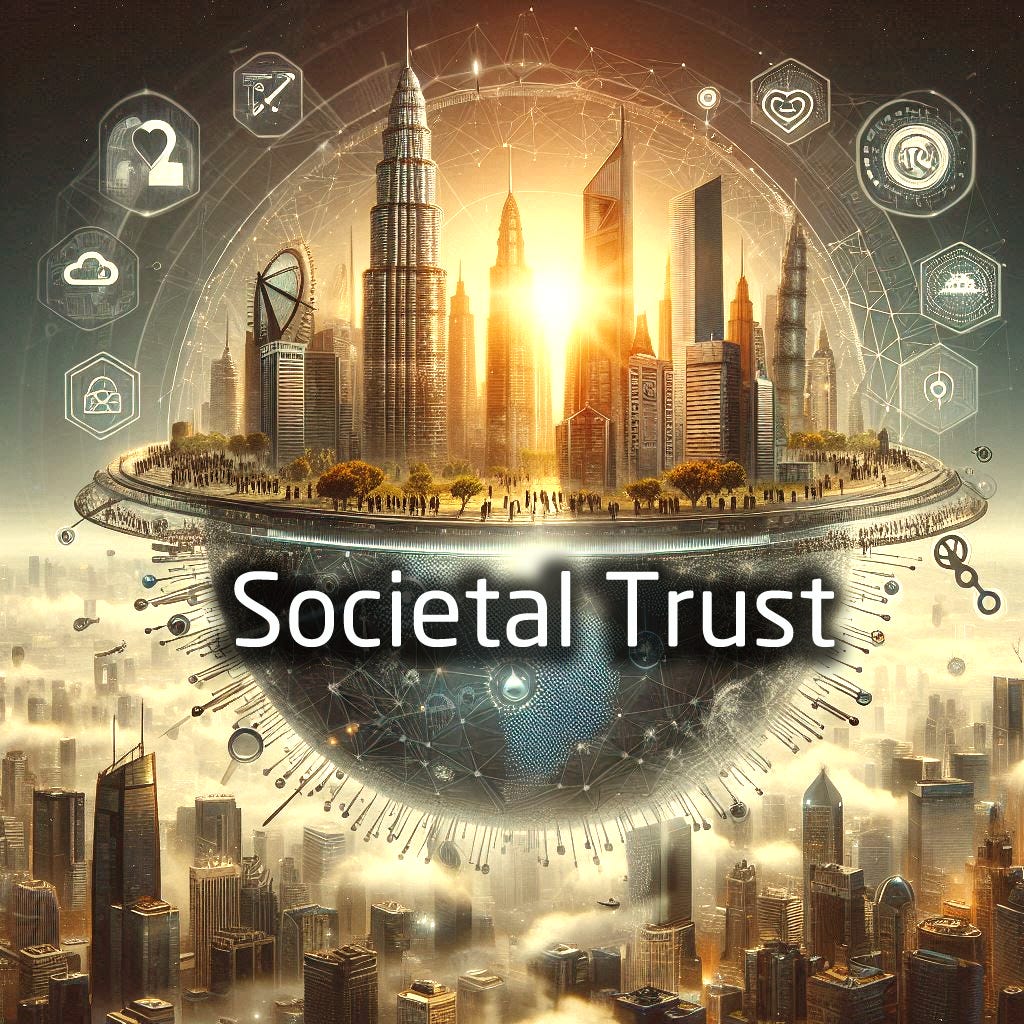As artificial intelligence (AI) becomes an omnipresent and omnipotent force in our lives, we find ourselves at a pivotal point, pressured to ponder the profound implications for trust in a tech-dominated world. While AI offers many benefits, it also presents new challenges that could significantly impact how we build trust in personal, professional, and institutional relationships.
Some key shifts in trust dynamics include:
- Decline of Traditional Sources of Trust: Decentralized, technology-driven alternatives are emerging, changing our understanding of trust1. For instance, blockchain technology is creating new trust paradigms in digital spaces by providing transparent and immutable records.
- Changes in Human Relationships: Technology has increased connectivity but altered the quality of our communications2. AI systems, capable of replicating human interaction patterns, raise concerns about their impact on community building and social cohesion.
- Ethical Dilemmas with Advanced AI: Trusting AI systems with critical decision-making risks perpetuating existing biases and inequalities3. Establishing trust in AI-driven decision-making requires transparency and accountability, ensuring that AI systems are fair and unbiased.
The concept of "digital trust" is emerging as a crucial component of our technological future. Blockchain and AI-powered reputation systems could revolutionize trust verification in online spaces4, but they also raise questions about privacy and the commodification of trust. For example, while blockchain ensures data integrity, it may also lead to privacy concerns due to its transparent nature.
To prepare society for these shifts, several strategies are crucial:
- Promoting Digital Literacy and Critical Thinking: Education systems should emphasize digital literacy and critical thinking to help individuals navigate the complexities of AI and digital trust.
- Addressing Governance Challenges: Policymakers must address new challenges in governing AI and trust, ensuring that regulations keep pace with technological advancements.
- Developing Ethical Frameworks: Ethical guidelines are essential for developing trustworthy AI systems.
AI continues to mediate our communications and decision-making, and therefore understanding and cultivating trust becomes increasingly vital. The interplay between technological advancements and societal trust dynamics will shape economic systems, legal frameworks, and social interactions in profound ways.
The future of trust in a tech-driven world hinges on our ability to adapt to new paradigms and address the ethical and practical challenges posed by AI and future technologies. By fostering digital literacy, implementing robust governance, and adhering to ethical standards, we can ensure that trust remains a cornerstone of our society in the digital age.
Botsman, R. (2017). Who can you trust?: How technology brought us together and why it might drive us apart. PublicAffairs.
Turkle, S. (2011). Alone together: Why we expect more from technology and less from each other. Basic Books.
O'Neil, C. (2016). Weapons of math destruction: How big data increases inequality and threatens democracy. Crown Publishing Group.
Tapscott, D., & Tapscott, A. (2016). Blockchain revolution: How the technology behind Bitcoin is changing money, business, and the world. Portfolio.


